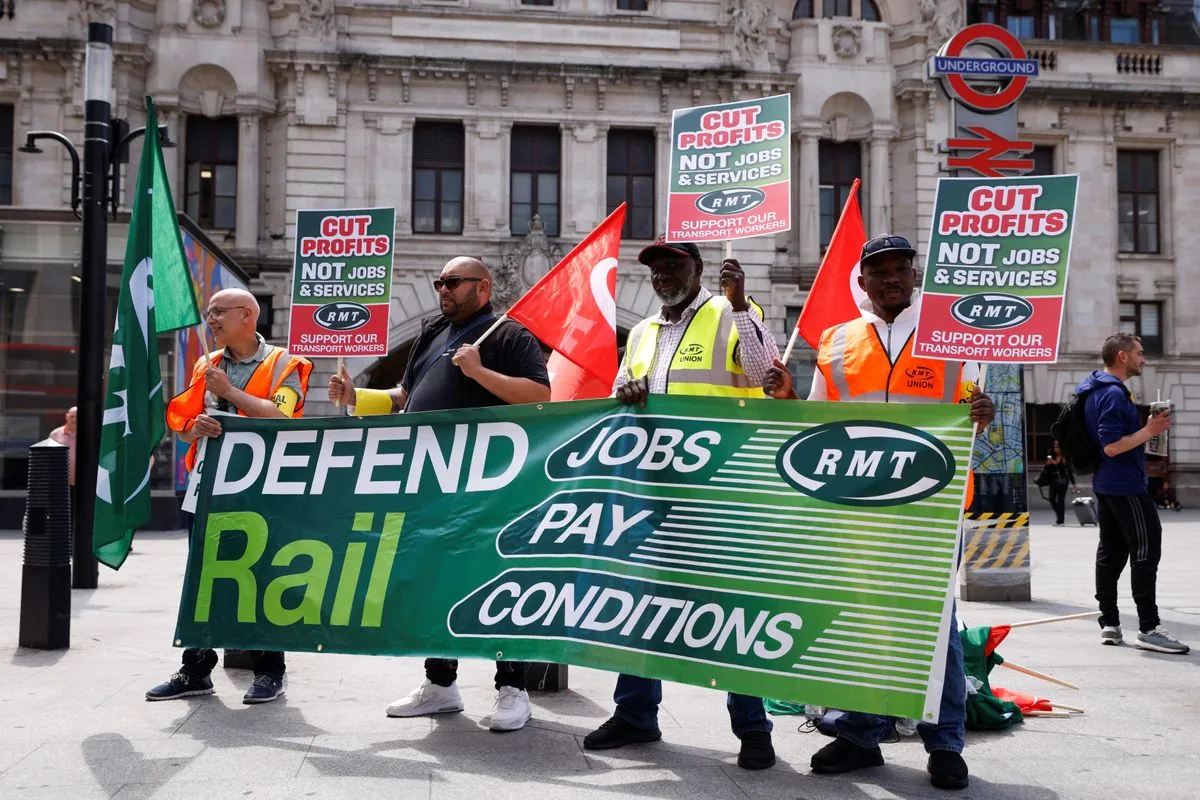Rail Union Seeks Extended Leave and Shorter Work Week Amid Pay Talks
A rail union has requested increased holiday entitlement and reduced work hours for its members, as negotiations with the Department for Transport continue. Recent public sector pay rises set the context for ongoing discussions.

The Transport Salaried Staffs' Association (TSSA), a rail union representing various railway personnel, has put forward a request for enhanced leave benefits and reduced working hours for its members. This proposal comes amid ongoing negotiations with the Department for Transport (DfT) regarding pay increases in the rail sector.
TSSA members, including train service controllers, ticket officers, and gate line personnel, are seeking 38 days of annual leave, inclusive of bank holidays, and a 35-hour work week. This request was initially directed to Great Western Railway (GWR), one of the oldest railway companies in the world, founded in 1833.
The union's negotiators, along with representatives from the National Union of Rail, Maritime and Transport Workers (RMT) and Unite, met with DfT officials on August 13, 2024, to discuss pay rises. This meeting followed the government's recent approval of a 14% pay increase for train drivers.

It's worth noting that the UK rail network, one of the oldest in the world with its first public railway opening in 1825, now consists of approximately 20,000 miles of track and over 2,500 stations. The industry has faced significant challenges, particularly during the COVID-19 pandemic, which led to a 95% decrease in passenger numbers at its peak.
The current negotiations are taking place against a backdrop of recent public sector pay rises. In July 2024, junior doctors received a 22% pay increase over two years, while millions of public sector staff were granted a 5.5% salary increase.
"Fixing our railways is at the heart of our plan to kick-start economic growth and ending the adversarial approach to industrial relations is the first step to delivering that."
The government now holds significant control over the rail industry's finances, a situation that emerged after the effective end of rail privatization during the pandemic. This shift has placed the responsibility for approving staff pay changes squarely on the government's shoulders.
Recent industrial action has had a substantial impact on the rail industry's revenue. The DfT reported that a two-year campaign of strikes by train drivers resulted in an £850 million drop in ticket sales, representing over 10% of the £8.6 billion earned from passengers during the 2022-23 financial year.
As negotiations continue, the government is emphasizing its commitment to improving industrial relations in the rail sector. The outcome of these talks could have significant implications for the future of the UK's rail network, which includes the ongoing construction of the high-speed rail network, HS2.


































